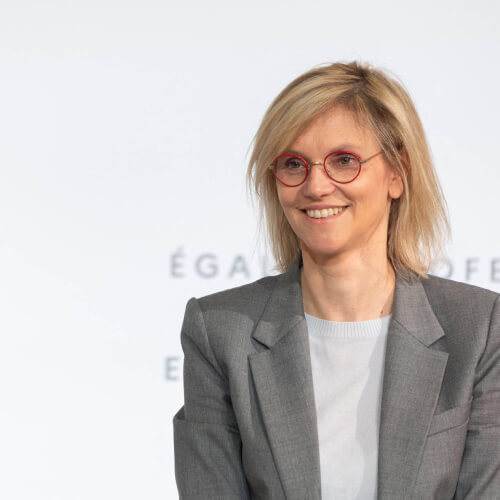
France is stepping up its efforts to boost industrial 5G, which the government has complained is lagging behind other European markets because of a number of factors – including access to spectrum frequencies that would allow certain industrial use cases to be deployed.
Two French government ministers are leading the charge: Agnès Pannier-Runacher, minister delegate for industry, and Cédric O, secretary of state for the digital transition and electronic communications.
Alongside Laure de La Raudière, the president of telecoms regulator Arcep, the two ministers have just announced that certain industrial sectors will now be able to access frequencies in the 3.8GHz-4.0GHz band in order to experiment with different use cases.
Figure 1:  Agnès Pannier-Runacher, France's minister delegate for industry.
Agnès Pannier-Runacher, France's minister delegate for industry.
(Source: Abaca Press/Alamy Stock Photo)
A maximum 100MHz block will be made available for three years to businesses in sectors including manufacturing, logistics, energy, health, smart city and more. Interested parties will be able to apply until the end of 2022.
Arcep noted that since this band is close to the core 5G band (3.4GHz-3.8GHz), a "mature and varied ecosystem of terminals and equipment" will be available to industrial players.
Industries already have access to frequencies in the 2.6GHz and 26GHz bands, with a particular focus on private mobile networks. The government is also now attempting to simplify access to the 2.6GHz TDD band by creating a new portal that maps where frequencies are available, and enables interested parties to apply for them.
Lagging behind
This latest move by the French government follows the publication of a report and related recommendations by Philippe Herbert, president of the Mission 5G Industrielle.
The report identified a total of seven reasons why industrial use has fallen behind in France, including poor access to spectrum, the insufficient availability of suitable equipment and services, difficulty in finding the right skills, and the lack of maturity of French and European industrial 5G ecosystems.
Also worth noting here is that France's mobile operators have a certain obligation to support industrial players, including the provision of dedicated 5G slices in the 3.4GHz-3.8GHz band.
France has probably been looking somewhat enviously at Germany, which made the somewhat controversial decision early on to allow industry and academia to apply for private 5G licenses for various use cases, with a particular focus on private or campus networks.
In November 2019, Bundesnetzagentur (Federal Network Agency/BNetzA) launched the applications process for local licenses in the 3.7GHz/3.8GHz band for vertical use cases. It then opened up the 26GHz band (24.25GHz–27.5GHz) on January 1, 2021.
Want to know more? Sign up to get our dedicated newsletters direct to
your inbox
As of March 15, 2022, BNetzA said it had received and granted 201 local 5G network applications in the 3.7GHz/3.8GHz band and ten in the 26GHz band. Applications have typically come from large industrial enterprises, airports, trade fair organizers, universities, research institutes and more.
Notably, Huawei Technologies is listed among the applicants. Only a small number of telecoms operators have applied for the local licenses, including NTT Germany, Telefonica Germany, Deutsche Telekom's T-Systems International and Verizon Germany.
Related posts:
— Anne Morris, contributing editor, special to Light Reading
Read more about:
EuropeAbout the Author(s)
You May Also Like












